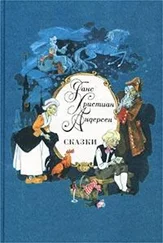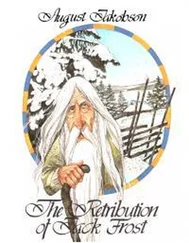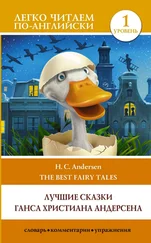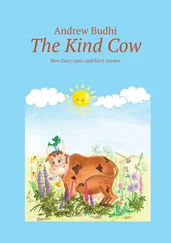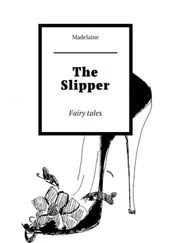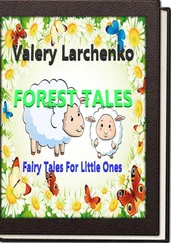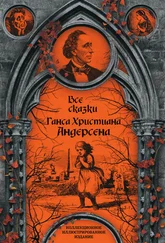Ганс Андерсен - Fairy Tales
Здесь есть возможность читать онлайн «Ганс Андерсен - Fairy Tales» весь текст электронной книги совершенно бесплатно (целиком полную версию без сокращений). В некоторых случаях можно слушать аудио, скачать через торрент в формате fb2 и присутствует краткое содержание. Жанр: Старинная литература, на английском языке. Описание произведения, (предисловие) а так же отзывы посетителей доступны на портале библиотеки ЛибКат.
- Название:Fairy Tales
- Автор:
- Жанр:
- Год:неизвестен
- ISBN:нет данных
- Рейтинг книги:4 / 5. Голосов: 1
-
Избранное:Добавить в избранное
- Отзывы:
-
Ваша оценка:
- 80
- 1
- 2
- 3
- 4
- 5
Fairy Tales: краткое содержание, описание и аннотация
Предлагаем к чтению аннотацию, описание, краткое содержание или предисловие (зависит от того, что написал сам автор книги «Fairy Tales»). Если вы не нашли необходимую информацию о книге — напишите в комментариях, мы постараемся отыскать её.
Fairy Tales — читать онлайн бесплатно полную книгу (весь текст) целиком
Ниже представлен текст книги, разбитый по страницам. Система сохранения места последней прочитанной страницы, позволяет с удобством читать онлайн бесплатно книгу «Fairy Tales», без необходимости каждый раз заново искать на чём Вы остановились. Поставьте закладку, и сможете в любой момент перейти на страницу, на которой закончили чтение.
Интервал:
Закладка:
“That was all last night. Now the will-o’-the-wisps are in town. They have set to work. But how and what they are doing, you tell me! I have a pain in my big toe because of a weather wire that always tells me something is up!”
“But this is a whole fairy tale!” said the man.
“Well, it’s really just the beginning of one,” said the bog witch. “Can you tell me how the will-o’-the-wisps are romping about and carrying on, and in what shape they are appearing in order to lead people astray?”
“I do think,” said the man, “that a whole novel could be writ ten about the will-o‘-the-wisps with twelve chapters, one for each will-o’-the-wisp; or maybe even better, an entire folk comedy!”
“You should write that!” said the bog witch, “or maybe it’s best to let it go.”
“Yes, that’s more comfortable and pleasant,” said the man. “Then you avoid being staked in the newspapers which is just as hard as it is for a will-o’-the-wisp to lie in a rotten tree, shining but unable to say a word!”
“It’s all the same to me,” said the bog witch. “But just let the others write, those who are able and those who are not. I’ll give an old tap from my barrel that will open up the cupboard with poetry in bottles, and from there they can get what they’re lacking. As for you, my good man, it seems to me that you have gotten enough ink on your fingers and have reached the age and maturity not to run after fairy tales every year, when there are much more important things to do here now. You must have understood what is going on, haven’t you?”
“The will-o‘-the-wisps are in town!” said the man. “I have heard it, and I understand it! But what do you want me to do about it? I’ll just be raked over the coals if I see one and tell people: Look! There goes a will-o’-the-wisp in the guise of an honest man.”
“They also wear skirts!” said the bog witch. “The will-o’-the-wisp can assume all shapes and appear in all places. He goes to church, not for the Lord’s sake, but maybe he’s gone into the minister! He speaks on election day, not for the country’s sake, but just for his own. He’s an artist, both in the painter’s paint jar and the theater’s make-up jar, but when he gets complete power, then there’s the end of it: the jar’s empty. I talk and talk, but I must get out of my throat what’s stuck there, even though it harms my own family. I’m going to be the savior of humanity. It’s truly not something I can help, and I’m not doing it for the sake of a medal. But I’m doing the craziest thing I could—I’m telling a poet, so then the whole town will soon know about it!”
“The town won’t pay any attention,” said the man. “It won’t affect a single person. They’ll all think I’m telling a fairy tale when I tell them in complete seriousness ‘The will-o’-the-wisps are in town,’ said the bog witch. ‘Beware! ”’
NOTES
1 Reference to En Hverdagshistorie (1828; A Story of Everyday Life) by Thomasine Gyllembourg; the novella gave its name to a whole genre of stories about contemporary Copenhagen. Andersen did not like the genre.
2 Reference to Paul de Kock ( 1793-1871 ) , French author of popular novels of Parisian life.
3 In Danish the word the nightjar teaches the will-o’-the-wisps to say is bra, which means “fine” or “good.”
4 According to legend, fourteenth-century King Valdemar mocked God by preferring hunting to heaven. Hence he was condemned to ride and hunt the Danish countryside every night.
THE PIXIE AND THE GARDENER’S WIFE
You KNOW THE PIXIE, but do you know Madame, the gardener’s wife? She was well-read, knew verses by heart, and could even write them easily herself. Only the rhyming, the “riveting together” as she put it, sometimes gave her a little trouble. She had the gift of writing well, and the gift of gab. She could certainly have been a minister, or at least a minister’s wife.
“The earth is beautiful in its Sunday dress,” she said, and she had put that thought in a composition, including “riveting.” She had written it into a ballad that was both beautiful and long.
Her cousin, the seminarian, Mr. Kisserup—his name is really not relevant—was visiting the gardener’s, and heard her poem. He said that it really did him good. “You have soul, Madame!” he told her.
“What nonsense!” said the gardener. “Don’t go putting that idea into her head. A wife should be a body, a decent body, and watch her kettles so the porridge doesn’t get crusty.”
“What gets crusty I remove with a wooden spoon,” said Madame, “and I take the crusty from you with a little kiss! One would think that you only thought about cabbages and potatoes, but you love the flowers!” And then she kissed him. “Flow ers are the soul,” she said.
“Watch your kettle!” he said and went out into the garden. That was his “kettle,” and he took care of it.
But the seminarian sat and talked to Madame. In his own way he held almost a little sermon over her lovely words, “The earth is beautiful.”
“The earth is beautiful. We were told to subdue it and be its masters. One person does so by his spirit, another with his body. One person comes into the world as astonishment’s exclamation mark, another like a dash, so you really can ask what he’s doing here. One becomes a bishop, another just a poor seminarian, but it’s all done wisely. The earth is beautiful and always in its Sunday best! That was a thought-provoking poem of yours, Madame, full of feeling and geography.”
“You have soul, Mr. Kisserup!” said Madame, “a deep soul, I assure you. One feels so much clarity after talking with you.”
And they continued talking, just as nicely and well as before. But in the kitchen there was also someone talking, and that was the pixie, the little grey-clothed pixie with the red stocking cap. You know him! The pixie sat in the kitchen and was watching the kettle. He talked, but nobody heard him except the big black pussycat, “Creamsneaker,” as he was called by Madame.
The pixie was furious at her because he knew she didn’t believe that he was real. Granted, she had never seen him, but with all her reading she must have known that he existed and should therefore have given him a little attention. It never occurred to her to put out so much as a spoonful of porridge for him at Christmas. All his ancestors had gotten that, and from madames who didn’t read at all. The porridge had been swimming in butter and cream. The cat got wet whiskers just hearing about it.
“She calls me a concept!” said the pixie. “It’s beyond my conception that she can say that. She completely repudiates me! I overheard that, and now I’ve been listening again. She is sitting in there gossiping with that boy-beating seminarian. I’m with father: ‘Watch your kettle!’ She’s not doing that, so now I’ll make it boil over.”
And the pixie blew on the fire. It flamed up and burned. “Surri-rurri-rupp!” There the kettle boiled over!
“Now I’m going in to pick holes in father’s socks,” said the pixie. “I’ll unravel a big hole in the toe and the heel, so there’ll be something to darn, if she doesn’t start sprouting poetry then. Darn poet lady—darn father’s socks!”
The cat sneezed at that. He had a cold, even though he always wore a fur coat.
“I’ve opened the pantry door,” said the pixie. “There’s some boiled cream there, as thick as flour porridge. If you don’t want to lick it up, I will!”
“Since I will get the blame and the beating, I may as well lick the cream,” said the cat.
“First eating, then beating,” said the pixie. “But now I’m going to the seminarian’s room to hang his suspenders on the mirror and put his socks in the water basin. He’ll think the punch was too strong, and that his head’s swimming. Last night I sat on the wood pile by the doghouse. I really enjoy teasing the watchdog. I let my legs hang over and dangle. The dog couldn’t reach them, no matter how high he jumped. It made him mad. He barked and barked. My legs dangled and dangled. It was a riot, and woke the seminarian up. He peered out three times, but he didn’t see me, even though he was wearing glasses. He always wears them when he sleeps.”
Читать дальшеИнтервал:
Закладка:
Похожие книги на «Fairy Tales»
Представляем Вашему вниманию похожие книги на «Fairy Tales» списком для выбора. Мы отобрали схожую по названию и смыслу литературу в надежде предоставить читателям больше вариантов отыскать новые, интересные, ещё непрочитанные произведения.
Обсуждение, отзывы о книге «Fairy Tales» и просто собственные мнения читателей. Оставьте ваши комментарии, напишите, что Вы думаете о произведении, его смысле или главных героях. Укажите что конкретно понравилось, а что нет, и почему Вы так считаете.

![Ганс Андерсен - Ганс Чурбан[другой перевод]](/books/95480/gans-andersen-gans-churban-drugoj-perevod-thumb.webp)
